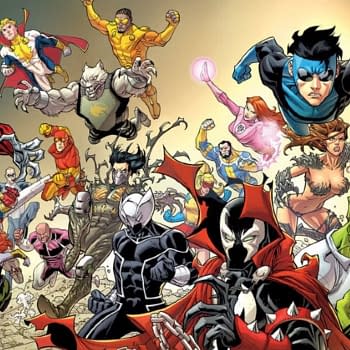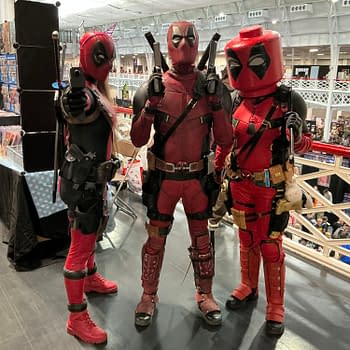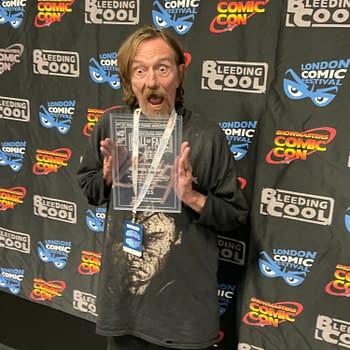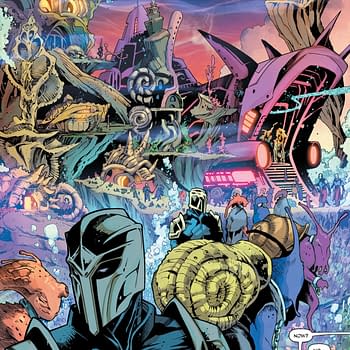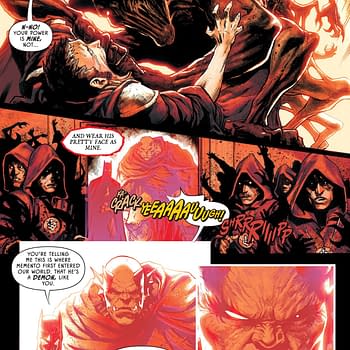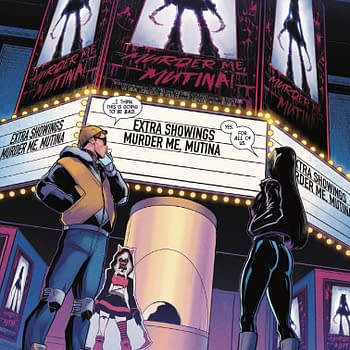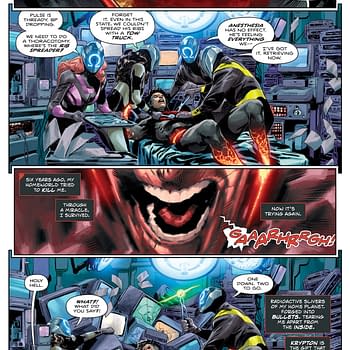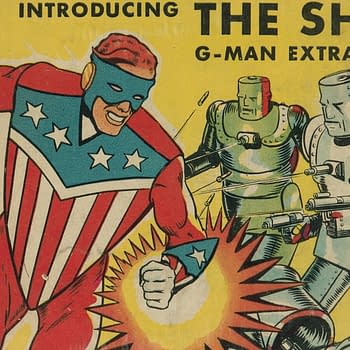Posted in: Comics, Look! It Moves! by Adi Tantimedh | Tagged: games, gone home
Gone Home To A Lost Decade by Adi Tantimedh: Look! It Moves!
Adi Tantimedh writes;
Gone Home is a video game you play on your computer.
It is a first-person game with no people in it. Only a house and its objects offering evidence of the lives that were lived in it.
To write about Gone Home is to dissipate its mystery, its secrets, its grip. You should not be reading this. This is a reverie, a lament, a free-associative tour of the game's mood and meanings. It invites you to talk about it. You get as much out of it as you put in.
[youtube]http://www.youtube.com/watch?v=sqSbYsUalMQ[/youtube]
You are a teenage girl who returns from your gap year traveling around Europe to find your house abandoned. Your parents are gone and you find a note from your younger sister imploring you not to look for her. The house is a mess and you go through its hallways and rooms opening drawers and reading notes to piece together what happened while you were away. The year is 1995. It is a dark and stormy night and you are alone in a big house your father inherited from a dead relative.
Gone Home plays on your expectations of horror stories and haunted houses, of secrets lurking in dark corners only exposed as you literally bring personal letters and hidden notes to light. You do not fight aliens or shoot zombies. You switch on lights and read messages. You anticipate a ghost to emerge and attack you, yet none comes forth. This game has ghosts more subtle than that. You hear your sister's voice like a long-lost memory from the ether when you read her journals. You discover who your parents are, and what kind of person your younger sister became in your year away. You read about her coming-of-age through her tastes in movies, books and music. You play mix tapes of her favourite indie rock bands from that year and the blossoming of first, forbidden love. You feel dread at the prospect of uncovering a potential tragedy.
Gone Home is a ghost story, but the ghost is not a person. The ghost is the 1990s, a dead decade brought back to undead life through pixels and sound.
Gone Home is an invocation of he 1990s through its pop culture and how they coincided, resonated with people's inner lives. The decade was an era of inward reflection and mystery after the end of the Cold War. With no more Great Enemy to fear, thus aliens and ghosts became the hobgoblins of the Mind. Your father obsessively recorded The X Files and science fiction movies on VHS and your sister fantasised about ghosts haunting this old house. Yet to your parents, she became the alien living under their roof, her thoughts and tastes increasingly unfathomable to them, and your father was haunted by the ghosts of his own past, his tragedies both secret and open, while your mother searched for meaning and solace elsewhere as her marriage frayed and ruffled.
Do you feel guilt as you hear your sister's voice in the ether, hear her struggle as she becomes a person in your absence, trapped in a house and a town that that doesn't understand her without the sibling she looked up to for support?
Do you reel from the tragedy of your father failing to understand your sister's emerging identity, lost as he was in his own failings and personal demons that her angry rebellion must have paralysed his own ability to react? Did he see in her a mirror image of his own struggles and recoil in terror, retreating into his shell?
Gone Home is proof that we are living in a Science Fiction future. Where Marcel Proust wrote a book about memory and remembrance, Gone Home is a collection of pixels containing a more indirect and elliptical narrative. Where Proust observed people, here you inspect their aftermath. It is a game where you actively search for answers: the puzzle is two-fold, finding the keys to locked rooms and secret passages akin to finding answers to why the house is abandoned. It is a space full of the leftover debris of entire lives lived in that decade, an era that now feels increasingly hazy and mythical as the 1970s began to feel in the 1990s. The house and the family are a microcosm of 1990s, a time capsule of its mores, attitudes and obsessions. Apart from the preoccupation with modern American gothic horror, it was also the era of garage bands, of Riot Grrls, of fanzine culture becoming an expression of social identity and awakening sexuality. It even subtly recalls the cult zine comic Hothead Paisan, one of the touchstones of 90s zine era. It recreates in a computer simulation how intimate and organic communicates used to be, when everything had to be written out on paper and passed around by hand.
Where Marcel Proust used the novel to describe every detail he could muster in the recollection of his era, Gone Home depicts its lost time in a series of loose notes and letters whose true meaning are left to you to infer. It is a fictional simulacrum of a microcosm of 1995, a period when most things were still analogue. TV shows were recorded on magnetic tape that degraded. The internet had not yet overtaken the world. America was in relative peace and prosperity without a War on Terror to be paranoid about. It is a mythical lost time before social media and cyberbullying, before ubiquitous smartphones and surveillance became the norm, before the fetishisation of instant celebrity and reality shows and homogenous singing contests became all-encompassing, when everyone was left alone with their thoughts and their fears and frustrations, and dreams of escape.
Gone Home is a ghost in your machine. The family that is gone, that didn't exist except as a series of pictures, notes, record collections and indie rock songs becomes real, and will linger in your mind. They are that lost decade of the 1990s, gone from that house, leaving only their things to speak for them, and like that faded decade, their futures became uncertain, lost in the wind and the rain and the dark.
You have reached the end of your brief search for lost time.
Gone Home is now available for download on Windows, Mac and Linux.
Never going home at lookitmoves@gmail.com
Follow the official LOOK! IT MOVES! twitter feed at http://twitter.com/lookitmoves for thoughts and snark on media and pop culture, stuff for future columns and stuff I may never spend a whole column writing about.
Look! It Moves! © Adisakdi Tantimedh










